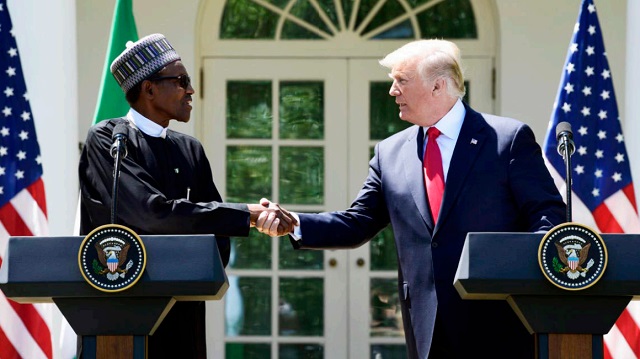
And what to expect from Biden
| Francis Owusu and Padraig Carmody | Donald Trump was propelled to the U.S. presidency by promising to rewrite globalisation rules. This included restricting trade when it directly hurt the U.S., clamping down on immigration, and reducing commitments to the global order. His administration’s “America First” foreign policy also meant disengaging from its obligations to Africa, which he infamously referred to as “shit-hole countries”.
Historically, the U.S. foreign policy approach to Africa could be classified as benign neglect. This was characterised by a general lack of interest in the continent in the pre–World War II era. After World War II, U.S. policy involved engaging or disengaging with individual countries, mostly defined in terms of counteracting the Soviet Union’s attempt to gain influence in the region.
A serious and sustained US–Africa engagement began under the Clinton administration. It subsequently deepened with significant bipartisan support. Indeed, the Clinton, Bush and Obama administrations saw a remarkable continuity in both the Congress and the White House on the U.S. agenda in Africa.
Africa’s share of annual U.S. foreign assistance funding increased over the past two decades. Although U.S. development and security aid to Africa grew, part of the increase was in support of President George W. Bush’s Emergency Plan for AIDS Relief (PEPFAR), launched in 2003. Under President Obama U.S. aid allocated to Africa fluctuated between $7 billion and $8 billion annually.
Trump’s election signaled a radical break with this consensus. His approach represented, in part, a return to the pre-Clinton era. Notwithstanding the administration’s rhetoric, however, Africa continued to receive roughly $7 billion in annual U.S. aid allocations in its first three years.
US-Africa trade fell to approximately $41 billion in 2018, down from a high of $100 billion in 2008. On the whole, African countries have continued to export natural resources, such as petroleum and metals, to the U.S. Since 2000, the African Growth and Opportunity Act has been the main channel through which trade is conducted. It provides tariff-free access to 6,900 products from 39 countries.
In our paper, we show how the Trump administration’s policies affected Africa in detrimental ways.
Malign neglect of Africa
Under Trump’s administration, investment policy was driven by the push to open up markets for U.S. goods and services. Its trade policy favoured bilateral, rather than multilateral, agreements. This shift, if sustained, could have undermined the growth of smaller countries, such as Lesotho. This is because such economies may not be of enough economic interest to the U.S. to warrant a separate trade deal.
There were also punitive measures against countries that went against the administration’s expectations of reciprocal “free” trade. For instance, Rwanda was suspended from tariff free access to the U.S. market after it introduced substantial duties on imports of second hand clothes. This came on the back of lobbying by second hand clothing exporters association in the U.S.
The administration’s largely uninterested stance may also have had detrimental effects on U.S. foreign private investment to Africa. The U.S. foreign direct investment in Africa decreased from $50.4 billion in 2017 to $43.2 billion in 2019. This 14% decline came at a time when other countries like China were increasing their investments in the region.
The administration also crippled the capacity of the State Department and its international assistance agency by failing to fill essential positions in these agencies and through budget cuts. Such actions strained relationships and cut lines of communication.
Trump’s “Muslim” travel ban denied entry to nationals of a number of Muslim-majority countries, including several African ones. Imposed under the banner of U.S. security, it had the effect of further reinforcing negative images of the continent as a place of insecurity and danger.
The Trump administration periodically expressed concern about the supposedly nefarious and negative impacts of Chinese engagement on the continent. Yet the impact of its own policies has been to reduce U.S. influence in the region and further “open up the playing field” for Chinese actors.
The loss of U.S. hegemony on the continent is evidenced by the diversifying of Africa’s foreign direct investment sources. It is also visible in shifts in its trade with key foreign partners, and increased diplomatic representation of other countries in Africa.
 The Independent Uganda: You get the Truth we Pay the Price
The Independent Uganda: You get the Truth we Pay the Price





